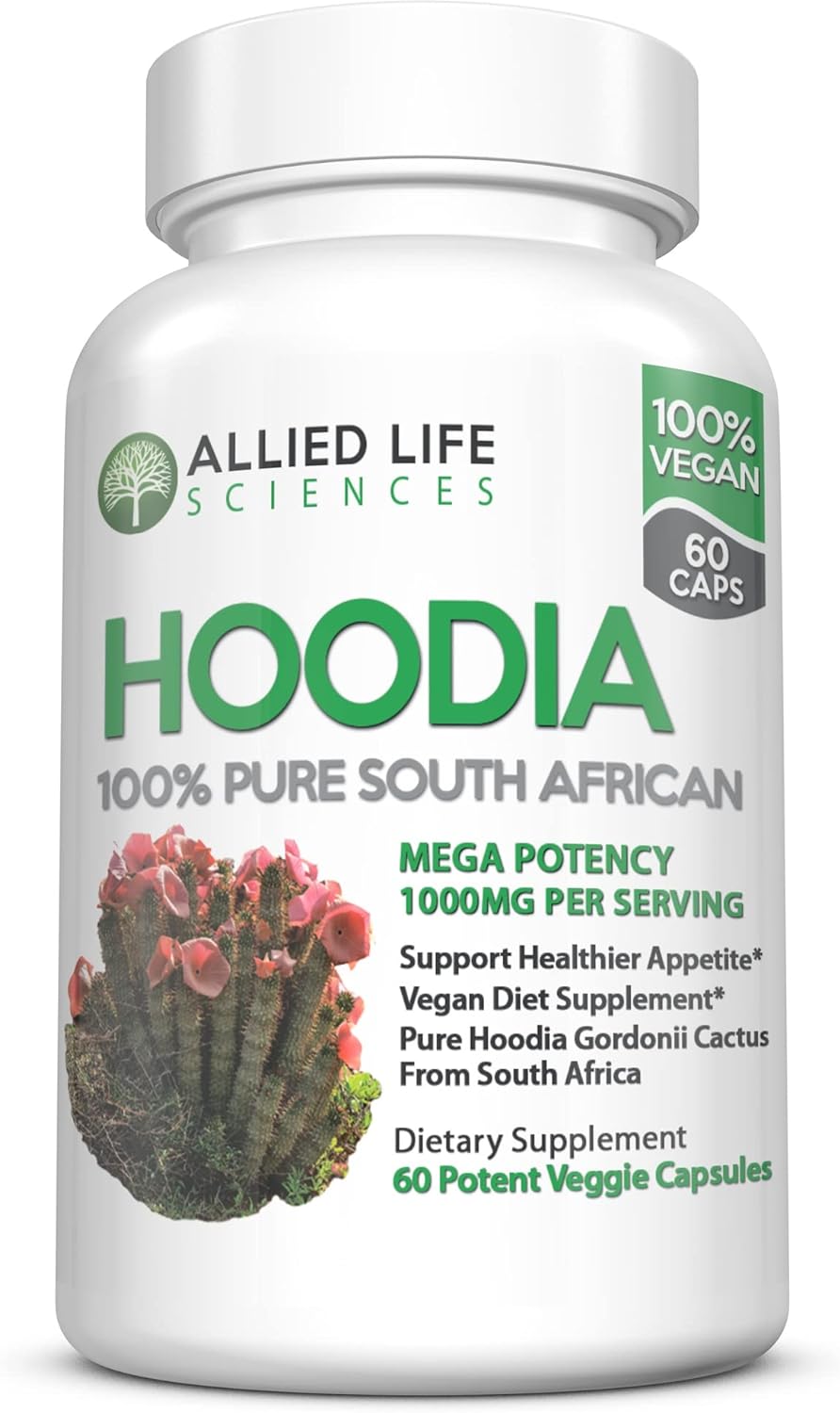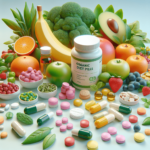Table of Contents
Table of Contents
Are you concerned about whether or not vegans need to take supplements? Many people wonder if a plant-based diet provides all the essential nutrients that the body needs. In this article, we will explore the topic of veganism and supplementation, discussing the potential nutrients that may require additional attention for vegans. Let’s delve into this topic and gain a better understanding of whether or not supplementation is necessary for those following a vegan lifestyle.
Vegan Diet Basics
A vegan diet is a plant-based diet that completely eliminates the consumption of animal products, including meat, dairy, eggs, and honey. It is centered around whole plant foods such as fruits, vegetables, grains, legumes, nuts, and seeds. The primary motivation behind following a vegan diet is typically ethical, environmental, or health-related. By abstaining from animal products, vegans aim to minimize harm to animals, reduce their carbon footprint, and improve their overall health and well-being.
Common Nutrients Found in Animal Products
Animal products are a rich source of several essential nutrients that are vital for human health. These nutrients include vitamin B12, iron, calcium, and omega-3 fatty acids. Vitamin B12 is crucial for the formation of red blood cells and neurological function. Iron is essential for oxygen transport and energy production in the body. Calcium is vital for strong bones and teeth, muscle function, and nerve transmission. Omega-3 fatty acids play a role in brain health, reducing inflammation and supporting heart health.

Potential Nutritional Deficiencies in Vegan Diet
While a well-planned vegan diet can provide most of the necessary nutrients, there are some potential deficiencies that vegans need to be aware of. The most common deficiencies in a vegan diet are vitamin B12, iron, calcium, and omega-3 fatty acids. Without proper supplementation or careful attention to food choices, vegans may be at risk of developing these deficiencies, which can have detrimental effects on their health if left unaddressed.
Essential Nutrients for Vegans
In order to maintain optimal health on a vegan diet, there are certain key nutrients that need to be given special attention. These include vitamin B12, iron, calcium, and omega-3 fatty acids. Let’s take a closer look at each of these nutrients and their roles in the body.
Vitamin B12
Vitamin B12 is one of the most critical nutrients for vegans to pay attention to, as it is primarily found in animal-based foods. It is essential for the formation of red blood cells and proper neurological function. Vegans can obtain vitamin B12 through fortified foods such as plant-based milk, breakfast cereals, and nutritional yeast, or by taking a vitamin B12 supplement.
Iron
Iron is necessary for the production of red blood cells and the transport of oxygen throughout the body. While plant-based sources of iron are abundant, the type of iron found in plant foods, known as non-heme iron, is not as easily absorbed by the body as heme iron found in animal products. To enhance iron absorption, vegans should consume iron-rich foods such as legumes, whole grains, nuts, and seeds, along with a source of vitamin C for better absorption.
Calcium
Calcium is crucial for maintaining strong bones and teeth, muscle function, and nerve transmission. While dairy products are a common source of calcium, vegans can obtain this mineral from plant-based sources such as fortified plant milks, tofu, tempeh, leafy greens like kale and collard greens, and calcium-set tofu. It’s important to consume a variety of these calcium-rich foods to ensure adequate intake.
Omega-3 Fatty Acids
Omega-3 fatty acids play a crucial role in brain health, reducing inflammation and supporting heart health. While fatty fish is the most common dietary source of omega-3s, vegans can obtain these essential fats from plant-based sources such as flaxseeds, chia seeds, hemp seeds, walnuts, and algae-based supplements.

Vegan Sources of Essential Nutrients
Fortunately, there are plant-based sources of each of these essential nutrients that vegans can incorporate into their diets. Let’s explore some of the main sources of vitamin B12, iron, calcium, and omega-3 fatty acids for vegans.
Plant-based Sources of Vitamin B12
Fortified plant milks, breakfast cereals, nutritional yeast, and some meat substitutes are often fortified with vitamin B12. These fortified foods can be an excellent source of this important nutrient for vegans. Some vegan-friendly brands also offer vitamin B12 supplements specifically tailored to the needs of vegans.
Plant-based Sources of Iron
Legumes such as lentils, chickpeas, and black beans are excellent sources of iron for vegans. Whole grains, such as quinoa and brown rice, and nuts and seeds like pumpkin seeds and cashews also provide significant amounts of iron. Leafy greens like spinach and kale can also contribute to iron intake, although they contain less iron compared to legumes and grains.
Plant-based Sources of Calcium
Vegans can obtain calcium from fortified plant milks, such as almond, soy, and oat milk. Other plant-based sources of calcium include tofu and tempeh made with calcium salts, sesame seeds, tahini, and leafy green vegetables like kale and collard greens. It’s important to note that the calcium in plant-based foods may not be as readily absorbed as the calcium in dairy products, so consuming a variety of these sources is essential.
Plant-based Sources of Omega-3 Fatty Acids
Flaxseeds, chia seeds, hemp seeds, and walnuts are plant-based sources of omega-3 fatty acids for vegans. These foods contain alpha-linolenic acid (ALA), which is converted into omega-3 fatty acids in the body. For those who prefer a supplement, algae-based omega-3 supplements are an excellent vegan-friendly alternative to fish oil capsules.
Challenges in Obtaining Nutrients from Vegan Sources
While there are many plant-based sources of essential nutrients, there are some challenges that vegans may face when it comes to obtaining these nutrients solely from vegan sources. These challenges include issues related to absorption and bioavailability, meeting recommended intake levels, and individual dietary preferences and restrictions.
Absorption and Bioavailability
Some nutrients found in plant-based foods may not be as easily absorbed or readily bioavailable as those obtained from animal products. For example, non-heme iron found in plant-based foods is not as well absorbed as heme iron from animal sources. To enhance the absorption of these nutrients, vegans should focus on consuming foods rich in these nutrients along with other foods that enhance absorption, such as vitamin C-rich foods for iron.
Meeting Recommended Intake Levels
It can be challenging for vegans to meet the recommended intake levels of certain nutrients, especially when it comes to vitamin B12 and omega-3 fatty acids. Vitamin B12, in particular, is not naturally present in plant foods, making supplementation or fortified foods crucial for maintaining adequate levels. Similarly, omega-3 fatty acids are often found in higher quantities in fish compared to plant foods, necessitating careful attention to include plant-based sources or supplements to meet recommended intake levels.
Individual Dietary Preferences and Restrictions
Each individual has their own unique dietary preferences and restrictions, which can further complicate obtaining all essential nutrients from vegan sources alone. For example, someone who follows a gluten-free vegan diet may need to pay special attention to finding alternative sources of nutrients like iron and calcium. Additionally, those with food allergies or intolerances may have to eliminate certain plant-based sources, requiring additional planning and consideration to ensure nutrient adequacy.

Benefits of Vegan Supplements
Incorporating vegan supplements into a plant-based diet can provide several benefits, including ensuring adequate nutrient intake, meeting specific dietary needs, and preventing nutritional deficiencies.
Ensuring Adequate Nutrient Intake
While a well-planned vegan diet can meet most nutrient needs, incorporating supplements helps to fill any nutritional gaps and ensure optimal nutrient intake. Supplements provide a convenient and reliable source of essential nutrients, especially those that are harder to obtain from vegan sources alone.
Meeting Specific Dietary Needs
Vegan supplements can be particularly beneficial for individuals with specific dietary needs or restrictions. For example, pregnant or breastfeeding women, older adults, and athletes may have higher nutrient requirements, which can be met more easily with the help of supplements.
Preventing Nutritional Deficiencies
Supplementation can play a crucial role in preventing the development of nutritional deficiencies in vegans. By providing key nutrients that may be challenging to obtain solely from plant-based sources, supplements act as a safety net, ensuring that all nutrient needs are met and reducing the risk of deficiencies.
Types of Vegan Supplements
There are several types of vegan supplements available to address specific nutrient needs. Let’s explore the different types of supplements commonly used by vegans.
Vitamin B12 Supplements
Vegan-friendly vitamin B12 supplements are available in various forms, including tablets, capsules, and sublingual (under the tongue) drops. These supplements provide an easy and reliable way to meet the vitamin B12 needs of vegans.
Iron Supplements
Iron supplements, often in the form of ferrous sulfate or ferrous gluconate, are commonly used to address iron deficiencies in vegans. It’s important to choose an iron supplement that is gentle on the stomach and to follow the recommended dosage provided by healthcare professionals.
Calcium Supplements
Calcium carbonate and calcium citrate are two common forms of calcium supplements that vegans can consider. It’s essential to opt for supplements that provide elemental calcium and to follow the recommended dosage guidance.
Omega-3 Supplements
Vegans can opt for algae-based omega-3 supplements, which are derived from microalgae. These supplements offer a vegan-friendly alternative to fish oil for meeting omega-3 fatty acid needs.
Multivitamin and Mineral Supplements
Multivitamin and mineral supplements specifically formulated for vegans are available and can provide a broad range of essential nutrients in one convenient package. These supplements can be especially beneficial for individuals who have difficulty meeting multiple nutrient needs solely through diet.
Considerations when Choosing Vegan Supplements
When selecting vegan supplements, there are several factors worth considering to ensure their quality, authenticity, dosage, recommended intake, form, bioavailability, and potential interactions or side effects.
Quality and Authenticity
It’s important to choose supplements from reputable brands that undergo third-party testing to ensure their quality, potency, and safety. Opting for supplements that are certified vegan or labeled as suitable for vegans can provide additional assurance of their authenticity.
Dosage and Recommended Intake
Following the recommended dosage provided on supplement labels is essential to ensure the appropriate intake of nutrients. It’s also important to consult healthcare professionals or registered dietitians for personalized recommendations based on individual nutrient needs.
Form and Bioavailability
Consider the form of a supplement and its bioavailability when making a selection. Some nutrients are more efficiently absorbed in particular forms or when taken with certain foods. For example, certain forms of calcium may be better absorbed with meals.
Potential Interactions and Side Effects
Research potential interactions and possible side effects that may occur when combining supplements with other medications or supplements. Consulting with healthcare professionals can help identify any potential risks or conflicts.
Consulting with a Healthcare Professional
Before starting any supplementation regimen, it’s always recommended to consult with a healthcare professional or a registered dietitian. They can provide personalized nutrient assessments based on individual health factors, dietary preferences, and specific needs. Healthcare professionals can guide and recommend appropriate supplements and dosages based on individual requirements.
Personalized Nutrient Assessment
A healthcare professional can conduct a thorough nutrient assessment to identify any potential deficiencies and determine what specific nutrients need attention. This assessment may involve analyzing blood work, medical history, and lifestyle factors.
Supplementation Recommendations
Based on the nutrient assessment and individual needs, healthcare professionals can recommend specific supplementation regimens to ensure optimal nutrient intake. They can guide individuals on selecting appropriate supplements, dosages, and timing.
Monitoring and Testing
Healthcare professionals can monitor individuals’ progress and track nutrient levels through regular testing and follow-ups. This allows for adjustment of supplementation regimens if needed, ensuring that nutrient needs are adequately met.
Balancing Supplement Use with Whole Foods
While supplements can be a valuable addition to a vegan diet, they should not replace whole food sources of essential nutrients. It’s essential to adopt a food-first approach to nutrient intake, emphasizing a varied and balanced diet rich in nutrient-dense plant-based foods.
The Importance of a Varied Diet
Eating a wide variety of plant-based foods helps ensure a diverse intake of nutrients. By incorporating different fruits, vegetables, grains, legumes, nuts, and seeds into your meals, you increase the likelihood of obtaining a broad spectrum of essential nutrients.
Food-First Approach to Nutrient Intake
Supplements should be used as additional support to complement a well-rounded plant-based diet. Relying solely on supplements can lead to an imbalanced diet and an increased risk of nutrient deficiencies. Whole foods provide not only essential nutrients but also beneficial fiber, antioxidants, and phytochemicals that promote optimal health.
Supplements as Additional Support
Vegan supplements should be seen as a means to supplement a well-rounded vegan diet, not as a replacement for whole foods. They can provide added assurance that nutrient needs are met, especially for nutrients that are more challenging to obtain from vegan sources alone.
Conclusion
In conclusion, a vegan diet can provide ample nutrition when properly planned, but there are certain nutrients that require extra attention. Vegans should be mindful of their vitamin B12, iron, calcium, and omega-3 fatty acid intake, as these are commonly at risk of deficiency. Fortified foods and plant-based sources can help meet these needs, but in some cases, supplements may be necessary to ensure adequate nutrient intake. Consulting with healthcare professionals and registered dietitians is essential for personalized nutrient assessments and supplementation recommendations. Balancing supplement use with a whole food-based diet is key to maintaining optimal health on a vegan diet. By being informed and making mindful choices, you can thrive on a vegan lifestyle while meeting all your nutritional needs.












